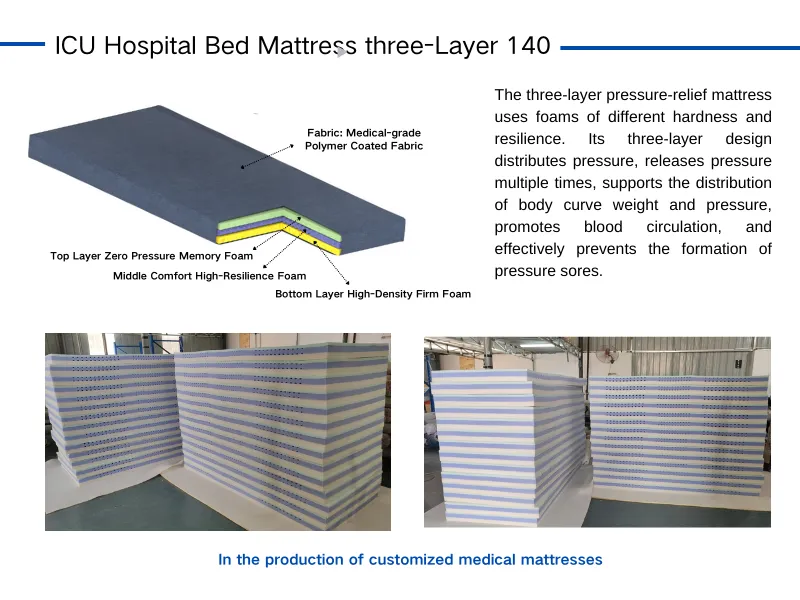anti-decubitus mattress pricelist
When it comes to healthcare, one critical aspect that should not be overlooked is patient comfort, especially for those who are bedridden or spend long periods in bed. Anti-decubitus mattresses, designed to prevent pressure sores and enhance patient comfort, have become essential in many healthcare settings. Understanding the pricing and options available in the market can help caregivers make informed decisions.
Anti-decubitus mattresses come in various types, including foam, air, and hybrid models. Each type has unique features and benefits that can influence their price. Foam mattresses, for instance, are generally more affordable and provide decent pressure relief. They are made of high-density foam, which helps distribute body weight evenly and reduce the risk of sore development. Prices for foam anti-decubitus mattresses typically range from $100 to $400, depending on brand and quality.
Air mattresses, on the other hand, are usually more sophisticated. They use a system of air cells that can be inflated or deflated to adjust firmness and support. This type of mattress is recommended for patients at higher risk of developing pressure sores due to its ability to reduce pressure points more effectively. The price of air mattresses often starts around $300 and can exceed $2,000 for advanced models with multiple settings and features.
Hybrid mattresses combine elements of both foam and air technology, offering a balance of comfort, support, and pressure relief. These mattresses are designed to cater to a wider range of patients and can be more versatile, though they often come at a higher price point, ranging from $500 to $1,500.
anti-decubitus mattress pricelist

In addition to the type of mattress, other factors can influence pricing. Brands, warranty, and additional features such as waterproof covers, adjustable settings, and portability can all play a crucial role in determining costs. Higher-end models may offer advanced technology like alternating pressure settings, which can further enhance patient safety and comfort.
When looking for an anti-decubitus mattress, it’s essential to consider the specific needs of the patient, including weight, mobility, and the level of care required
. It’s also wise to explore various suppliers and manufacturer options to find the best combination of price and quality.In summary, the variances in pricing for anti-decubitus mattresses reflect their diverse features and technologies. By doing thorough research and assessing the specific requirements of the patient, caregivers can select the most suitable mattress while staying within budget. Ultimately, investing in a quality anti-decubitus mattress can significantly enhance comfort and overall quality of life for individuals needing long-term bed rest.
-
The Effect of Coconut Foam Mattress Breathability and Humidity Regulation on Improving Sleep QualityNewsJul.03,2025
-
How Wave Mattress Systems Improve Blood Circulation During ImmobilityNewsJul.03,2025
-
The Climate-Adaptive Sleep Revolution: Exploring the Benefits of Cooling Gel Memory Foam MattressesNewsJul.03,2025
-
Exploration of the Role of Coconut Foam Mattress in Preventing Bedsores in the ElderlyNewsJul.03,2025
-
Comparing Wave Mattress and Air Mattress: Which Is Better for Medical Use?NewsJul.03,2025
-
Analysis of Comfort and Environmental Performance of Natural Latex and Coconut Foam MattressNewsJul.03,2025
-
Multi-Layer Construction for Enhanced Performance in Gel Mattress PadNewsJun.24,2025

